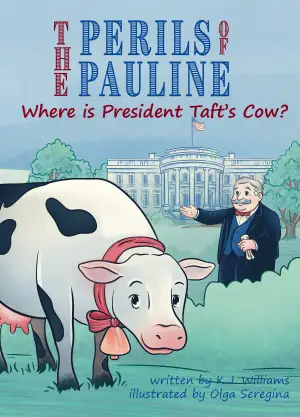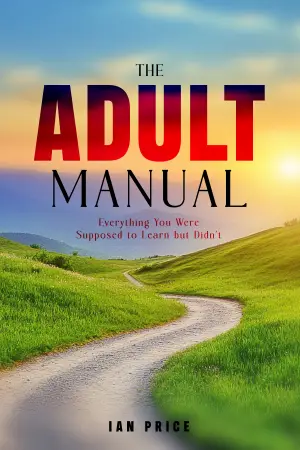Dependent clauses can often confuse writers and readers alike. They cannot stand alone, requiring an independent clause to form a complete thought. But what exactly are dependent clauses, and why should you care? Let’s dive into the nitty-gritty of dependent clauses and how they function within sentences.
Table of Contents
What is a Dependent Clause?
A dependent clause refers to a set of words containing both a subject and a verb, but does not express a complete thought. This clause depends on an independent clause to provide context and meaning. For example, in the sentence “Although she was tired, she finished her homework,” the phrase “Although she was tired” is a dependent clause. It leaves us hanging, necessitating the independent clause “she finished her homework” to make sense of it.
Basic Structure of a Dependent Clause
To identify a dependent clause, look for subordinating conjunctions such as “although,” “because,” “since,” “unless,” and “while.” These words indicate that the clause cannot stand alone.
Example:
- “Although it was raining, we decided to go for a walk.”
- In this sentence, “Although it was raining” is the dependent clause. This clause does not form a complete thought. It depends on the independent clause, “we decided to go for a walk,” to form a complete sentence.
Types of Dependent Clauses
Dependent clauses can be categorized into three major types: adverbial clauses, adjective (or relative) clauses, and noun clauses. Let’s break them down with clear examples.
Adverbial Clauses
Adverbial clauses function like adverbs, modifying verbs, adjectives, or other adverbs. They often explain how, when, where, or why something happens. Here’s a closer look at how they work.
Examples:
- Condition: “If it rains tomorrow, the picnic will be canceled.” The clause “If it rains tomorrow” sets a condition for the picnic.
- Time: “When the clock struck midnight, the celebration began.” Here, “When the clock struck midnight” indicates the timing of the celebration.
These clauses can often start the sentence or come after the independent clause, with proper punctuation.
Adjective Clauses
Adjective clauses serve a descriptive purpose, providing additional information about a noun. They usually start with relative pronouns such as “who,” “whom,” “whose,” “that,” or “which.”
Examples:
- “The book that she recommended was a bestseller.” In this case, “that she recommended” describes “the book.”
- “The artist, who won several awards, will be at the gallery.” “Who won several awards” adds detail about “the artist.”
These clauses enhance clarity and add depth by qualifying nouns.
Noun Clauses
Noun clauses function as nouns within a sentence. They can act as subjects, objects, or complements.
Examples:
- Subject: “What you said surprised me.” Here, “What you said” is the subject of the sentence.
- Object: “I believe that honesty is the best policy.” In this sentence, “that honesty is the best policy” is the object of the verb “believe.”
These clauses allow for complex thoughts to be expressed more clearly.
Examples in Real-Life Contexts
To give you a better sense of how dependent clauses can fit naturally into your writing, consider the following scenarios.
Example 1: Storytelling
When writing fiction, you want readers to feel immersed in your story. Using dependent clauses can add layers to your narrative.
Scenario: A novelist is creating a scene where a character discovers a hidden treasure.
“Although she was afraid of what she might find, Jessica pushed the door open.”
Here, the dependent clause “Although she was afraid of what she might find” conveys the character’s internal conflict. This approach adds tension to the moment, drawing readers in deeper.
Example 2: Technical Writing
In technical documentation, clarity is essential. Dependent clauses can help explain processes without overwhelming the reader with long, complex sentences.
Scenario: An IT manual is outlining steps for troubleshooting a computer issue.
“Before restarting the computer, ensure all unsaved work is saved.”
The dependent clause “Before restarting the computer” sets a clear instruction, establishing a cause-effect relationship that helps readers follow the steps easily.
Example 3: Academic Writing
In academic essays, dependent clauses can articulate complex ideas efficiently.
Scenario: A student is writing an analysis of a literary work.
“Because the character grew throughout the story, readers connected with him more deeply.”
The dependent clause “Because the character grew throughout the story” explains the reason for the readers’ emotional connection.
Punctuation with Dependent Clauses
Proper punctuation is crucial when using dependent clauses. The placement of these clauses within a sentence can affect whether a comma is necessary.
Starting with a Dependent Clause
When starting sentences with dependent clauses, place a comma right after them.
Example: “When the sun sets below the horizon, the sky turns orange.”
The comma signals a pause, clarifying the sentence structure and aiding reader comprehension.
Ending with a Dependent Clause
If the dependent clause appears at the end of the sentence, no comma is required.
Example: “The museum is closed on Mondays unless there is a special event.”
Here, the absence of a comma indicates a straightforward continuation of the thought.
Common Mistakes with Dependent Clauses
Understanding dependent clauses can prevent some frequent slip-ups in writing. Here are a few common mistakes.
1. Misplacing Commas
Commas can be tricky around dependent clauses. Generally, when the dependent clause comes first, you should put a comma before the independent clause.
Incorrect:
- “Although it was late we decided to continue.”
Correct:
- “Although it was late, we decided to continue.”
2. Fragment Sentences
A dependent clause should never stand alone. Avoid creating a fragment by mistakenly punctuating a dependent clause as a complete sentence.
Incorrect:
- “Whenever I see her.”
Correct:
- “Whenever I see her, I feel happy.”
3. Overusing Dependent Clauses
While dependent clauses enhance writing, overdoing them can lead to overly complex sentences. Here’s a straightforward comparison:
Overuse:
- “Although I like ice cream, which is my favorite dessert, I prefer cake because it’s often more appealing.”
Simplified:
- “Although I like ice cream, I prefer cake.”
Keeping sentences clear and concise helps maintain reader engagement.
Practice Using Dependent Clauses
Getting comfortable with dependent clauses can enhance your writing. Here are some exercises to solidify your understanding.
Task 1: Identify the Dependent Clauses
Read the following sentences and underline the dependent clauses.
- “As the sun sets below the horizon, the sky turns orange.”
- “Because she was late, she missed the train.”
- “If you need help, just ask.”
Task 2: Combine Sentences
Combine the pairs of sentences below, using dependent clauses.
- “It was cold outside. We decided to stay indoors.”
- Answer: “Since it was cold outside, we decided to stay indoors.”
- “She loves to swim. She goes to the pool every day.”
- Answer: “Because she loves to swim, she goes to the pool every day.”
Task 3: Create Your Sentences
Construct sentences using dependent clauses for the following scenarios:
- A reason for a decision you made.
- Example: “Since it was too late to go out, I decided to stay home.”
- A description of an event.
- Example: “While she was reading, she didn’t notice the time.”
Transitioning Between Dependent and Independent Clauses
When using dependent clauses, it’s crucial to transition to the independent clause smoothly. Using subordinating conjunctions effectively is key in this seamless shift.
Example of Smooth Integration
“Although the presentation was challenging, he delivered it with confidence.”
Here, the dependent clause “Although the presentation was challenging” flows smoothly into the independent clause, showing contrast.
Contrasting Ideas
Sometimes, you may want to highlight contrasting ideas using dependent clauses.
Example:
“The weather was unfavorable, yet we decided to hike despite the rain.”
The phrase “despite the rain” could be rephrased into a dependent clause for variety.
- “Although the weather was unfavorable, we decided to hike.”
Enhancing Your Writing Style with Dependent Clauses
Incorporating a variety of sentence structures elevates your writing style. Dependent clauses add variety and detail without needing long explanations.
Think Variety
Mix dependent clauses with different sentence types to maintain reader interest. Blend simple, compound, and complex sentences for balance.
Example:
“During the fall, the leaves change colors, and while we walk through the park, I admire their beauty.”
Here, different sentence structures are created by the dependent clause, enhancing flow.
Emphasize Important Information
You can also place dependent clauses strategically to emphasize specific parts of your sentences, drawing the reader’s attention where it matters.
Example:
“The project, because of its complexity, took much longer than expected.”
In this sentence, “because of its complexity” provides essential information and draws focus.
Resources for Further Learning
If you’re looking to deepen your grasp of dependent clauses, consider these resources:
- Grammarly: Use this tool to check your writing for errors related to dependent clauses and overall grammar.
- Purdue OWL: This online writing lab provides clear explanations and examples of various grammatical concepts.
- Writing Workbooks: Look for books focused on grammar exercises to sharpen your skills.
Additional Information
Dependent clauses can be tricky, but they hold some fascinating secrets that can enhance your writing.
- They Can Start Sentences: Many people think that sentences must start with independent clauses, but dependent clauses can kick things off. For example: “Although it was raining, we still went for a walk.”
- Function as Adjectives, Adverbs, or Nouns: Dependent clauses aren’t just there for decoration; they serve specific functions in sentences. An adjective clause might say, “The book that you lent me was thrilling.”
- Can Shorten Sentences: Using dependent clauses can help you tighten up your writing. Instead of saying, “I went to the store. The store was open,” you can say, “I went to the store, which was open.”
- Flexibility with Punctuation: When dependent clauses are at the start of a sentence, they’re usually followed by a comma. However, if you place them at the end, the comma often disappears. For example, “I finished my homework although I was tired.”
- They Can Be Introduced by Words Other Than ‘That’: While “that” is common, other words like “because,” “although,” and “if” also introduce dependent clauses. For instance: “If it snows tomorrow, school might be canceled.”
- Can Create Variety in Writing: Using dependent clauses can help break up monotony and add complexity to your writing style. For instance, “Even though I was tired, I decided to finish the book, which kept me awake.”
- Can Be Removed or Altered Without Changing Basic Meaning: Some dependent clauses are optional. For example, “The teacher who loves science is my favorite.” You can remove “who loves science” and still convey the basic idea, “The teacher is my favorite.”
- They Encourage Mishaps: Misplaced dependent clauses can lead to confusion. A statement like “He told me that he’s allergic to cats after he finished eating” can mislead readers about when the allergy information was shared.
- Can Indicate Time or Condition: Dependent clauses often provide context for actions and events. Phrases like “Whenever you call” or “Unless it rains” establish essential details about the timing or conditions of other events.
- They Can Strengthen Arguments: By embedding dependent clauses, you can present supporting information seamlessly, such as “Although the book was lengthy, its arguments were compelling.”
Frequently Asked Questions (FAQs) Related to Dependent Clauses Examples
Q. What is a dependent clause?
A. A dependent clause refers to a set of words that has a subject and a verb but does not form a complete idea by itself. It needs an independent clause to make sense.
Q. Can you give an example of a dependent clause?
A. Sure! “Although she was tired” is a dependent clause. It leaves you wanting more information.
Q. What are some common words that start dependent clauses?
A. Common words include “although,” “because,” “if,” “when,” and “since.” These words signal that the clause depends on something else.
Q. How do you combine a dependent clause with an independent clause?
A. You can use punctuation to connect them. For example, “Although she was tired, she finished her homework.” The dependent clause comes first here.
Q. How can I identify a dependent clause in a sentence?
A. Look for a clause that starts with a subordinating conjunction (like “because” or “when”) and see if it can stand alone. If not, it’s a dependent clause.
Q. Are there types of dependent clauses?
A. Yes! The main types are adverbial clauses, adjective clauses, and noun clauses. Each serves a different purpose in a sentence.
Q. Can a dependent clause be placed at the end of a sentence?
A. Yes, you can place a dependent clause at the end. For example, “She went to bed early because she was tired.”
Q. Do all sentences need a dependent clause?
A. No, sentences can be complete with just an independent clause. But using dependent clauses adds detail and depth to your writing.
Q. Why are dependent clauses important in writing?
A. They help create complex sentences that add variety and improve flow in your writing, making it more engaging for readers.
Q. Can a dependent clause stand alone?
A. No, a dependent clause cannot stand alone because it does not express a complete thought. It needs an independent clause attached to form a complete sentence.
Conclusion
Understanding dependent clauses is essential for crafting clear and effective sentences. These clauses add detail and complexity to your writing, enhancing the overall flow. By recognizing how they work, you can improve your writing skills and communicate more effectively. So, the next time you’re putting words on the page, remember the power of dependent clauses and put them to good use!







